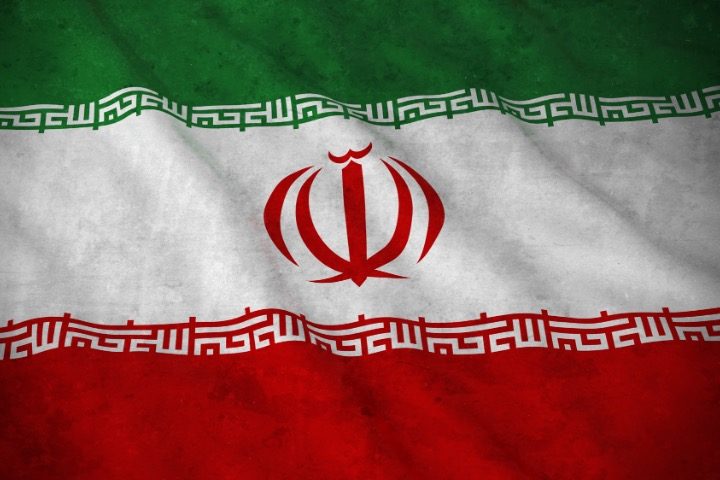
The military establishment continues to push hawkish rhetoric on Iran.
Retired Gen. Frank McKenzie, who served as commander of America’s Middle East forces for three years during the Trump and Biden administrations, says the White House should take a more aggressive stance in responding to attacks on commercial ships in the Red Sea.
As Politico reports, McKenzie, the former chief of the U.S. Central Command, contends that Iran sees the apparent lack of a forceful response to the increase in Houthi attacks on civilian ships as a sign that they can act against American interests with impunity.
Said McKenzie: “Sometimes you’ve got to throw a pitch. You can’t catch eternally, because eventually the law of averages is going to turn against you, and you’re going to take a significant escalatory event on a ship, and then you’re going to be forced into an even more significant level of response.” He added, “We’ve given them no reason not to continue [attacking].”
The Houthi movement, officially known as Ansar Allah, is a Shia Islamist political and military organization that emerged from the Saada Governorate of Yemen in the 1990s and has the backing of Iran.
On Sunday, the destroyer USS Carney engaged in an hours-long firefight with Houthi forces, shooting down three drones after the Houthi fired missiles and drones at civilian vessels. A few days later, the USS Mason found itself forced to shoot down another drone that the Houthi sent toward the ship.
Political leaders are wary of responding aggressively against the Houthi in Yemen, calculating that doing so could spark war with Iran. But McKenzie argues that escalation into war is not “inevitably” the consequence of a stronger military response. He says that Iran does not completely control the Houthis and will not risk an escalation into war with Israel.
“I think you can respond to the Houthis without feeling that you are attacking Iran because of the divergence in the Iranian and Houthi positions,” McKenzie argued in his remarks. He asserted that Iran will respect a show of force from the United States.
“There’s a fine line between avoiding escalation and inviting continued opportunities for Iranian and Houthi attacks, based on a perceived fecklessness on our part,” the general added. “We’re struggling to get that line right, right now. I would argue that, again, they respect the use of force and understand it and will respond to it.”
Politico further reported:
In total, Iran-backed proxies have attacked U.S. troops in Iraq and Syria 82 times since Oct. 17, injuring at least 66 service members.
Top Biden administration officials said they are discussing forming a new international maritime task force, under which U.S. and partnered ships could help ensure the safety of commercial ships in the Red Sea and Bab el-Mandeb strait, the passageway between the Red Sea and the Gulf of Aden.
Other former top commanders echo McKenzie’s opinion on the Houthi question. Retired Vice Adm. John Miller, who once led the U.S. 5th Fleet, told Politico that “We’re not deterring anybody right now.” Miller oversaw naval activities in the Middle East until 2022.
A recent piece by The New York Times details the way in which militias such as the Houthi fit into Iran’s foreign policy:
For decades, Iran’s Middle East strategy has been to meld informal military power through local armed groups with political influence over government policies. Starting in the 1980s, it helped finance and arm Lebanese Hezbollah. Then it gave expansive military and political support to the Syrian regime of Bashar al-Assad; military aid to the Houthis in northern Yemen; and support for the Al Ashtar Brigades in Bahrain.
The strategy has yielded significant fruits for Tehran. In Iraq’s 2021 elections, Iran-linked political parties, most of whom have their own militia wings, for the first time won enough seats in Parliament to form a governing coalition, selecting Mohammed Shia al-Sudani as prime minister. Thus, the destinies of Iran and Iraq are now intimately connected. Hoshyar Zebari, who was Iraq’s foreign minister for 10 years and finance minister until 2016, went so far as to tell the Times that Iran is “the predominant influence in Iraq today.”
Moreover, the Iranian-backed militia Kataib Hezbollah now controls a large swath of farmland south of Baghdad that is twice the size of San Francisco. While the territory is technically part of Iraq, Western intelligence officials say it effectively functions as a “forward operating base for Iran,” where militia members man border checkpoints and even Iraqi military do not dare to go.
Clearly, Iran, which is already a significant regional power, is on the ascendant, making major gains in spreading its influence to neighboring countries — not unlike the strategy the United States has employed to build its own hegemony.
And Iran has the support of Russia and China. Thus, while the U.S. may not like the fact that it is gradually getting elbowed out of the region by Iran, pushback must be calculated, as conflict with Iran could easily precipitate America into a major, devastating war.





















































